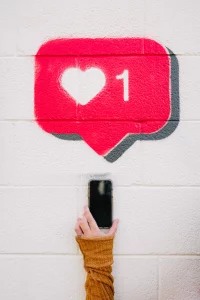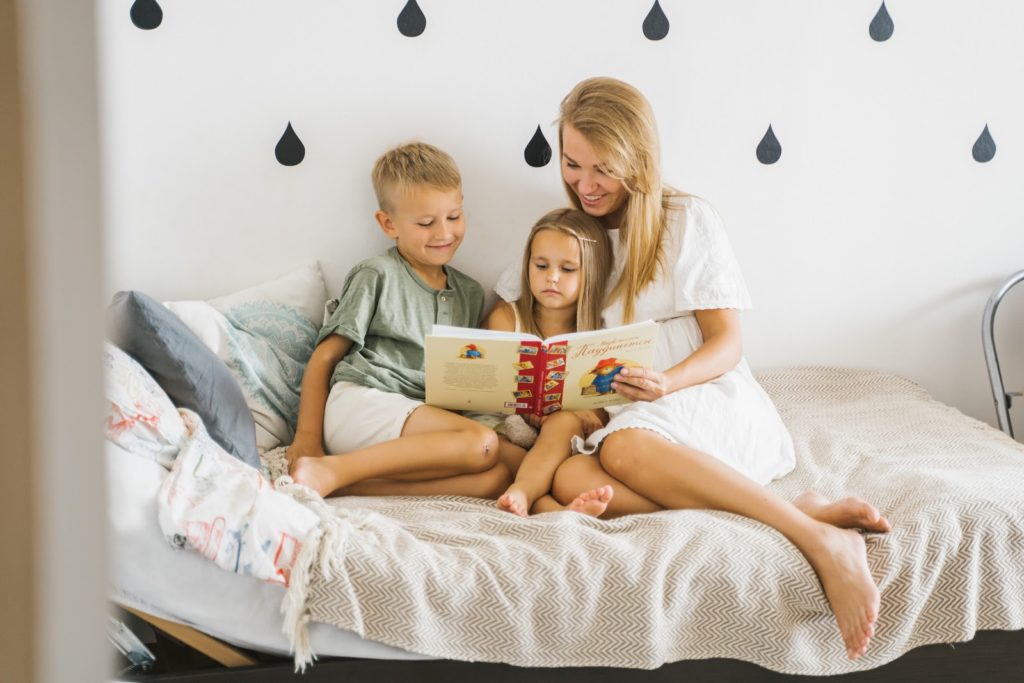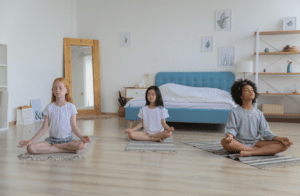
 A Good and Bad Influence(er)
A Good and Bad Influence(er)
Online influencers promote their personalities, content, areas of interest, and expertise on online platforms to gain recognition and build their brand. Gaining followers requires confidence and showmanship. To best compete, some influencers use editing tricks to appear more attractive, healthier, more competent, and extra qualified. Because editing tricks are hard to spot, kids often emulate influencers with the impression that they really are that perfect.
Positive Impacts of Social Media Influencers
The most popular categories that social media influencers focus on are lifestyle, health, fitness, travel, art, work, fashion, luxury, photography, beauty, pets and animals, and parenting.[2]
The positive impacts influencers offer include:
- information for education and awareness,
- an engaging and supportive community of like-minded people, and
- creativity and entertainment.
 Negative Impacts of Social Media Influencers
Negative Impacts of Social Media Influencers
Some influencers are less interested in quality content and more focused on entertainment that will boost their numbers. To that end, they will use more filters and online trickery and promote harmful content like unrealistic body types, lifestyles, diets, fashion, gossip, rumors, and drama. Harmful content can cause problems with kids and teens, including decreased appearance satisfaction, low self-evaluations, higher negative mood, and insecurity.[3] Over time, these problems can escalate to mental health issues like anxiety, depression, body dysmorphia, and eating disorders.
Body Positive Movement
According to a social media report from a Norwegian influencer marketing platform, 47% of surveyed influencers revealed that they felt their job harmed their mental health, and 32% believed the platform hurt body image.[4] One way to express and promote unconditional self-love is by supporting the body positivity movement. This worldwide movement focuses on acceptance and equality for all body types and sizes.
One of the movement’s goals is to challenge how our society, particularly all forms of media, presents and views the human body.[5] With body positivity modeled by influencers (without the use of filters and digital manipulation), fans feel more confident and comfortable in their bodies.
Instagram vs. Reality
Another popular movement in the media that spreads awareness about the harmful nature of social media is called Instagram vs. Reality. This movement offers a side-by-side comparison of two of the same photos; one photo edited and the other not.
The purpose of this trend is to bring attention to the differences between natural and filtered images. This trend inspires people to embrace themselves naturally without enhancements. Instagram vs. Reality reminds us that online content is not always accurate. Our Screen Safety Essentials Course for parents and families offers helpful strategies for social media behavior while reinforcing mindful habits to prevent feelings of self-consciousness and anxiety.
Seeking Self-Acceptance and Fleeing from Filters
Before friending or following someone in real life or online, consider if they reinforce positive, authentic, and empowering morals. Social media influencers that we like appear to serve from the depths of their experienced and passionate hearts.
Positive and Qualified Influencers to Follow
- Huda Kattan- Beauty Blogger and Makeup Artist
- Zach King- Digital influencer, Writer, Comedian
- Michelle Lewin- Fitness Influencer
- Jamie Oliver- Chef
- Joanna Gaines- Lifestyle Blogger and Writer
- Jack Morris- Travel Influencer
- Savannah LaBrant- Parenting Influencer
- Beth Evans- Mental Health Influencer
- PewdiePie- Gaming Influencer
- Amanda Gorman- Activist, Poet, Influencer
What Parents Can Do to Protect Their Kids
Parental oversight of child exposure to online content is critical for safety and developing a positive self-image. One way to do this is by monitoring your child’s online activity, such as the sites they visit, the content they watch, who they follow, and how much time they spend online.
GKIS has a variety of valuable courses designed to help families navigate the various pitfalls of internet exposure and prevent digital injury.
- The GKIS Social Media Readiness Training is a valuable tool that teaches teens about the inherent risks of social media and ways to make healthy decisions when encountering them.
- The Screen Safety Toolkit is a family-tested, outcome-based resource guide with our best recommendations, how-to information, and links to our favorite easy-to-onboard parental control systems.
- The GKIS Connected Family Course will provide parents of school-age families with tips for creating a safe screen home environment through fun parenting techniques that are designed to guide sensible screen management.
- Finally, our most comprehensive program is our Screen Safety Essentials Course. Our comprehensive Essentials Course provides parenting and family coaching information, support, and other valuable information and activities to get you dialed in for screen safety and healthier family relationships.

I’m the mom psychologist who will help you GetKidsInternetSafe.
Onward to More Awesome Parenting,
Tracy S. Bennett, Ph.D.
Mom, Clinical Psychologist, CSUCI Adjunct Faculty
GetKidsInternetSafe.com
Works Cited
DMI, Simon @. “20 Surprising Influencer Marketing Statistics: Blog: Online Digital Marketing Courses.” Digital Marketing Institute, Digital Marketing Institute, 27 Oct. 2021, https://digitalmarketinginstitute.com/blog/20-influencer-marketing-statistics-that-will-surprise-you.
“Best Influencer Marketing Categories.” IZEA, 5 Dec. 2019, https://izea.com/resources/influencer-marketing-categories/.
Liebenson, Donald. “Social Media Influencers: A Positive or Negative Influence?” NewFolks, NewFolks, 20 Sept. 2021, https://www.newfolks.com/stages/influencers-teenagers/.
Leighton, Heather. “Influencers Admit That Instagram Is Bad for Body Image, Mental Health, Study Shows.” Forbes, Forbes Magazine, 10 Dec. 2021, https://www.forbes.com/sites/heatherleighton/2019/12/13/is-instagram-bad-for-your-mental-health-body-image/?sh=3b44410b1e55.
Kristen Fuller, MD. “Body Positivity vs. Body Neutrality.” Verywell Mind, Verywell Mind, 11 June 2021, https://www.verywellmind.com/body-positivity-vs-body-neutrality-5184565.
Photo Credits
Karsten Winegar- https://unsplash.com/photos/60GsdOMRFGc
Mateus Campos Felipe- https://unsplash.com/photos/ZKJQCWsKmPs
Billie- https://unsplash.com/photos/k2vn6he4lDQ
Maddi Bazzocco- https://unsplash.com/photos/Vbt1zTCsSNA
Cristian Dina- https://www.pexels.com/photo/white-smartphone-1851415/

 A Good and Bad Influence(er)
A Good and Bad Influence(er) Negative Impacts of Social Media Influencers
Negative Impacts of Social Media Influencers





